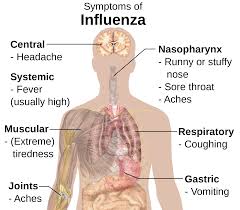记忆方法
记忆单词“influenza”可以采用以下简单方法:
将“in”看作是影响(influence)的缩写,而“fluenza”想象成流感流行的场景,即很多流“fluent”(流畅)的病毒感染了人群。这样的联想可以帮助你记住这个单词表示流感。
将“in”看作是影响(influence)的缩写,而“fluenza”想象成流感流行的场景,即很多流“fluent”(流畅)的病毒感染了人群。这样的联想可以帮助你记住这个单词表示流感。
以上内容由AI生成, 仅供参考和借鉴
中文词源
influenza 流感
in-,进入,使,-flu,流动,词源同fluid,fluent.引申词义传染性疾病,现用于指流感。
英语词源
- influenza
-
influenza: see flu
- influenza (n.)
- 1743, borrowed during an outbreak of the disease in Europe, from Italian influenza "influenza, epidemic," originally "visitation, influence (of the stars)," from Medieval Latin influentia (see influence). Used in Italian for diseases since at least 1504 (as in influenza di febbre scarlattina "scarlet fever") on notion of astral or occult influence. The 1743 outbreak began in Italy. Often applied since mid-19c. to severe colds.
权威例句
- 1. Every year new strains of influenza develop.
- 每年都有新的流感病毒出现。
- 2. They took steps to prevent the spread of influenza.
- 他们采取措施阻止流感的传播.
- 3. The last attack of influenza has left me rather groggy.
- 上次患流行性感冒后使我至今软弱无力.
- 4. Influenza proliferated throughout the country.
- 流感在全国蔓延.
- 5. Influenza is an infectious disease.
- 流感是一种传染病.
